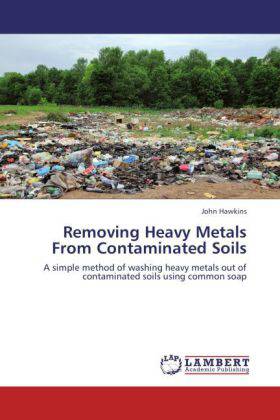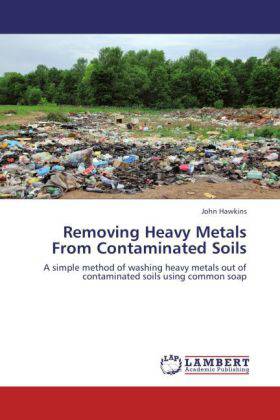
- Afhalen na 1 uur in een winkel met voorraad
- Gratis thuislevering in België vanaf € 30
- Ruim aanbod met 7 miljoen producten
- Afhalen na 1 uur in een winkel met voorraad
- Gratis thuislevering in België vanaf € 30
- Ruim aanbod met 7 miljoen producten
Zoeken
Removing Heavy Metals from Contaminated Soils
A simple method of washing heavy metals out of contaminated soils using common soap
John Hawkins
Paperback | Engels
€ 71,95
+ 143 punten
Omschrijving
Soap can remove water hardness ions (calcium and magnesium) from hard water in the form of insoluble 'lime soaps'. Might it also form heavy metal soaps when added to an aqueous dispersion of contaminated soil? Some researchers have studied the use of soap to remediate wastewaters contaminated with heavy metals, but there has been no work carried out on using it to wash them out of soil. This work shows that by carefully controlling the pH and temperature of the soapy wash water it is possible to form the heavy metal soaps. These soaps are insoluble in water and float to the surface where they can be skimmed off. This therefore provides a new, very simple, cost effective method of remediating soils contaminated with heavy metals. Whilst the results to date hold much promise there is still a significant amount of work that needs to be carried out to optimise the process; this work will hopefully stimulate further research in this important field.
Specificaties
Betrokkenen
- Auteur(s):
- Uitgeverij:
Inhoud
- Aantal bladzijden:
- 60
- Taal:
- Engels
Eigenschappen
- Productcode (EAN):
- 9783847325024
- Verschijningsdatum:
- 27/12/2011
- Uitvoering:
- Paperback
- Formaat:
- Trade paperback (VS)
- Afmetingen:
- 152 mm x 229 mm
- Gewicht:
- 99 g

Alleen bij Standaard Boekhandel
+ 143 punten op je klantenkaart van Standaard Boekhandel
Beoordelingen
We publiceren alleen reviews die voldoen aan de voorwaarden voor reviews. Bekijk onze voorwaarden voor reviews.








